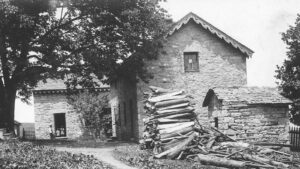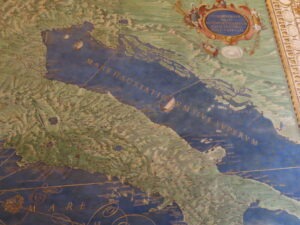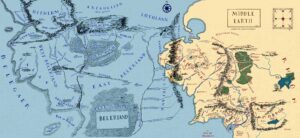An Open Letter to Florida Board of Education on the Occasional “Personal Benefit” of Enslavement
Dear designers of the new Florida state curriculum,
I’ve been reading about some of your newly prescribed teachings, and I would like to focus here on the teaching that the institution of slavery was (“in some instances”) beneficial to the people who were thus enslaved (Florida’s State Academic Standards – Social Studies, 2023, grades 6-8, African American History (p.6)):
SS.68.AA.2.3: Examine the various duties and trades performed by slaves (e.g., agricultural work, painting, carpentry, tailoring, domestic service, blacksmithing, transportation).
Benchmark Clarifications:
Clarification 1:* Instruction includes how slaves developed skills which, in some instances, could be applied for their personal benefit.
Well.
It is certainly true that enslaved people did get vast experience in skills they might not have otherwise developed**. And they would get to use these skills in their work.
So really, it’s just like an unpaid internship!
But one where your supervisors literally own you.
And your firstborn child.
In fact, all of your children, at least those they haven’t sold away so you never see them again.
And you don’t get to choose your work, nor who you’re working for.
And they beat you to make sure you do the work (or just if they’re mad), and there are no legal limits on your hours.
Nor any protections for your safety.
They can, however, legally kill you if you object.
And you’re not allowed to learn anything they don’t want you to.
In fact, it’s illegal for anyone to teach you to read.
If you’re among the first generation of interns, any skills you previously had are denied you, or else incorporated into their history of what you’ve learned there.
They’re not the ones teaching you your skills, anyway; you’re learning from other interns. The work you’re doing is not to help you be like your supervisors; it’s designed specifically so they don’t have to do it themselves: growing and cooking their food (and your own), building their houses (and your own), making their clothes (and your own), caring for their children (and hopefully your own).***
In some instances, the skills you develop can earn you special privileges, though of course only as allowed by your ensl– supervisor.
And you never get to leave**** – not to go home at night, not to quit, and certainly not to move on to the new, paid position the internship is surely preparing you for with all those skills.
So, yeah. An unpaid internship that you did not choose, for your entire life, from birth until death. I’m surprised you haven’t all applied for internships just like this.
And I really wonder, when you envision what it would be like to live in those times, in whose position you imagine yourselves to be.
Thank you,
A Concerned American
“As I would not be a slave, so I would not be a master. This expresses my idea of democracy. Whatever differs from this, to the extent of the difference, is not democracy.” – Abraham Lincoln, August 1858.
Some references:
– Florida’s State Academic Standards – Social Studies, 2023
– Cited in Heather Cox Richardson’s letter for July 22, 2023, where she also pulls apart other teachings outlined in the document.
– See also https://undergroundrailroadhistory.org/the-vocabulary-of-freedom/
_____
*Despite the numbering, this is the only clarification for this benchmark. The only thing they want to be absolutely sure kids are taught about the types of work Black people did within the institution of slavery. Why? Why is this important?
**Though really? “Agricultural work”?? This is a good, transferable skill, with excellent benefits? Will the students be taught that there are still people doing backbreaking “agricultural work” in massive fields in the blazing sun, who are noncitizens or second-class citizens, and that they have to petition long and hard for breaks and safety measures and fair pay, while white people who are anti-immigration would not choose those jobs for themselves?
(This is not to imply that agricultural work is not a skill. In fact, it’s lots of skills, which is part of my objection, though more that it would be desirable work.)

Early 20th century view of the Hampton site’s slave quarters, when used to house paid laborers and their families. National Park Service, Hampton National Historic Site.
(Note: I’m trying to fact-check my assertion that enslaved people built the structures they and their enslavers occupied, and I’m finding a surprising lack of agency. Even in articles that are clear about the language of enslavement, the buildings are just…built. The enslavers, or white architects, may have designed them, but they persist in just being built, mysteriously, in the passive voice.
Examples: Housing for the Enslaved in Virginia
Slave Quarters, Hampton National Historic Site)
****Except in some instances, where people had privileges approved by their enslavers. Perhaps part of the instruction can involve how many such “instances” there were, compared to the entire enslaved population. Because singling out an unusual opportunity in a history lesson will cause it to be weirdly outsized in kids’ minds if you somehow fail to tell them how rare it is.
And those who did benefit from those skills they learned, who were freed by their enslavers, or were allowed out to ply their new skills, or who were among the last generation who were kept enslaved? They might say it was a good trade compared to the people who didn’t get to leave their chains behind. But I can’t imagine anyone who would willingly make that trade, if the alternative had been no enslavement at all.

